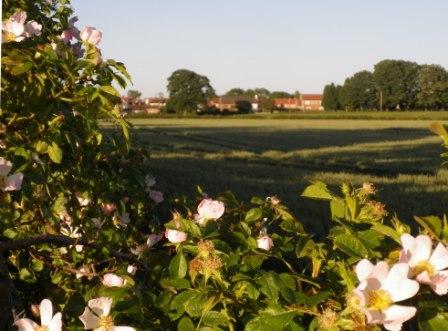Bladesmith
After two years living with an 11th century teenager, I finished writing my novel of the Harrying of the North.
Bladesmith tells of Gudrid, an 11th century Yorkshire blacksmith’s daughter who dreams of crafting the world’s finest, most desirable sword. But when William the Conqueror launches his Final Solution to English resistance, Gudrid sees the swords she coveted deal death. She and her six-year old sister escape into the wild, but how can Gudrid keep them alive amidst snow, hunger, roving soldiers – and then, a Hob?
Survival
What does it take to survive? Self-willed Gudrid learns that survival cannot be achieved alone: it demands teamwork, determination, ingenuity – and love.
Gudrid’s grit and determination kept me going through the first covid lockdown. I’m now pitching her to agents and publishers, hoping she will inspire them as she did me.
And, while pitching Gudrid, I began another story.
Felicity – a Yorkshire heiress
This time around, I’m living with Felicity, an early 20th century Yorkshire heiress.
Felicity first appeared in a short story I wrote for my creative writing group, Thirsk Write Now. My companions wanted to know more about her, so I wrote another couple of stories about her. Now, I am cataloguing her trials and tribulations as, unknown to her, the Great War creeps up.
Provisionally titled Yorkshire Rose, here is a taster of the first page.

The beginning of Yorkshire Rose
Hubert Bennett permitted himself a moment of satisfaction as he promenaded his garden, daughter on his arm. His house and gardens were impeccable, prepared for the guests due to arrive tomorrow.
And so too was his daughter, returned from boarding school transformed into a Young Lady.
Amongst his guests were Prospects for Felicity, all eminently Suitable.
Felicity was all loveliness, in billows of green-sprigged white muslin. Her feet stepped on close-cropped turf; soft fingers held the parasol protecting her face. Surely the young men would find her irresistible? Hubert certainly did.
In the herbaceous border beside them, flowers from across the Empire shimmered in the heat. Brilliant orange, luminous yellow, radiant purple: the Long Border showcased Hubert’s wealth, and the skill of his gardeners.
Felicity knew she must believe her Father had her best interests at heart. She struggled to listen as he spoke of people she did not know. Bernard, Harold, William, sons of Lord this and Baronet that: all that Felicity comprehended was that one of them must become her husband.
She had been sent to boarding school to learn to be a Lady. Being a Lady, Felicity discovered, was all about what one must not do. Do not run. Do not laugh. Neither wear stout footwear to walk freely, nor go barefoot to dabble toes in sparkling becks. Do not speak of anything that matters, nor of anything interesting. To be a Lady, one must extinguish oneself.
Kneeling behind the lupins, Sam inserted a trowel and hooked out a miniscule dandelion.
Unlike other boys of his Station in Life, Sam was well-grown. As a countrywoman, his mother had never lacked a rabbit for a pie, or vegetables for soup. And while Hubert fondly believed that his family received the best fruits from the Estate, Sam knew different. As a boy growing up, he ranged the kitchen gardens. He knew every fruit, every berry, and instinct led him to each at its prime.
Now, his healthy body revelled in the warm sunshine, in the perfume of the flowers, the strength of his body as he bent to extract the soft beginnings of a thistle.
The war in Africa had not been unkind him, reflected Hubert. Need of iron wheels from his foundry, that fitted gun-carriages very well, had enabled him to assist a baronet suffering financial embarrassment in his African ventures. Consequently, Hubert acquired land. Good Yorkshire land, in a fertile vale, sheltered from cold north winds by Moors – which also provided good shooting for his new friends.
A butterfly, great orange circles on dark wings, fluttered onto the crimson dinner-plate of a Sweet William. Over the wall, sparrows chirped contently on the potting shed roof. The sun burned on the gravel path, raising the musky scent of the box hedge.
On the wall behind Sam, the nest in the ivy was empty, the chicks fledged. But, perched on top of the wall, the blackbird watched him. Sam eyed the bird. They had an understanding.
Every year, Sam watched the nest. Would the birds raise their chicks if he wasn’t there? He remembered the chick that fell, the cat stalking the path towards it.
He observed Felicity walk with her father. She stepped sedately, but her fingers twisted at the parasol.
He recalled the girl who crouched, still and quiet, to watch the birds. The girl who ran, honey-coloured hair streaming behind her, racing to strip off her stockings and dabble toes in the crystal waters of the beck.
Now that hair was piled precariously upon her head, her body constrained by stays.
